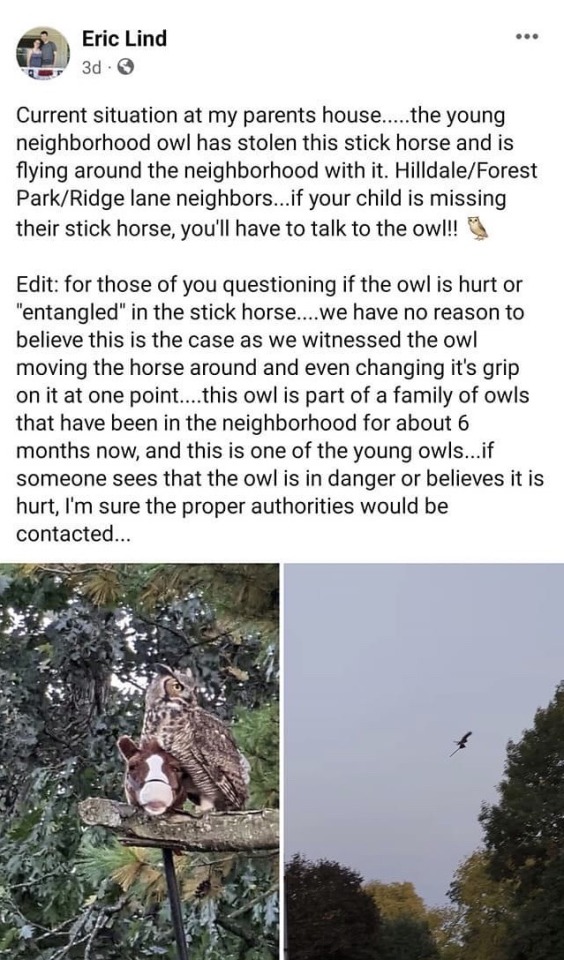Text
Images only, link to original Twitter at the bottom of post.





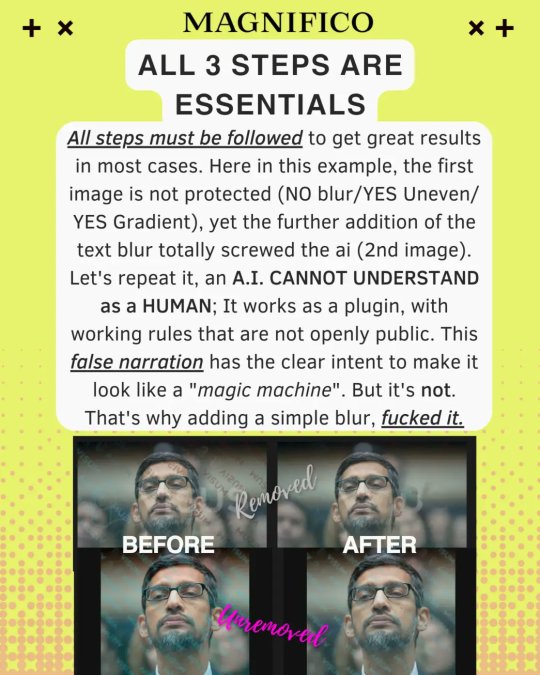


Full🧵 here:

54K notes
·
View notes
Text
The best part is that it’s a true fucking story y’all
I finally watched The Sound of Music and like I get it now, I get it.
It’s a beautiful two hour love story of a strict man finally opening his heart again and then a fifty minute public service announcement to hate the nazis. Brilliant.
150K notes
·
View notes
Text
I just read a detailed account of the Bal des Ifs and I’d never realised how funny this event was when you don’t focus on Madame de Pompadour. All I was taught at school is that it was the masquerade ball in 1745 where Louis XV first took (public) notice of la Pompadour, but what I didn’t know was that the former royal mistress had recently died so there was a vacancy so to speak, and a lot of noblewomen showed up specifically hoping to catch the King’s attention. But he came dressed up as a shrub (a yew tree similar to the ones in the royal topiary gardens) along with seven other men in identical costumes, so no one knew for sure which one was the King. People always focus on how Madame de Pompadour recognised the royal shrub and talked to him, but what about the women who didn’t!! History is written by the winners but I want to hear about the women who doggedly danced the minuet with random shrubs hoping this one was the one. My book mentions that a determined noble lady followed a yew tree outside the room on a hunch, only to find that she had bet on the wrong shrub. This is what the shrub costumes looked like by the way, imagine stalking one all over the park of Versailles at night because you think his gait looks kingly and you are an ambitious noblewoman
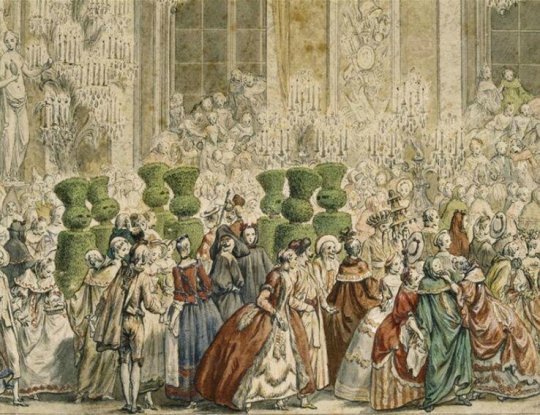
7K notes
·
View notes
Text
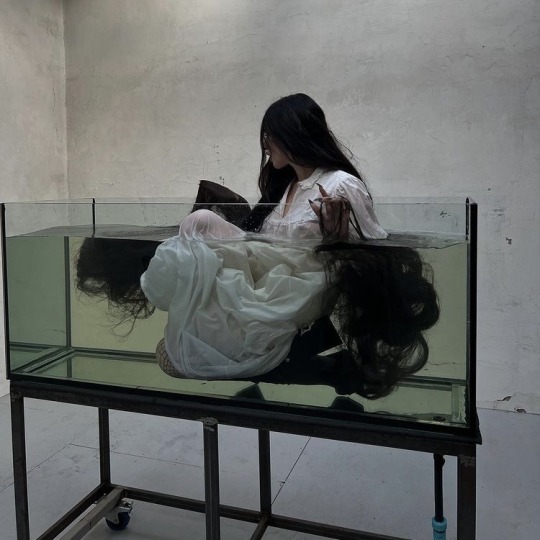



53K notes
·
View notes
Text
Would anyone like to see pictures of this bird I’m friends with
88K notes
·
View notes
Text
today in “things i’m disproportionately emotional about”:
it’s facial reconstructions of prehistoric humans!!
like, look at this part-homo sapiens, part-neandertal man from well over 30,000 years ago:

doesn’t he just look like a dude you’d wanna hang out with? like he probably washes dishes in the kitchen with you, and has excellent weed

what a charming fellow. what stories he probably has to tell. i’d definitely go shoot the shit with him on Contemplation Rock after i’d finished my day’s work carving a bone flute for the autumn hunting ceremony, or whatever
people have been people ever since people first became people, i tell you what
they all had lives and histories and families and friends and dumb gossip and games they played and total bullshit in which they believed wholeheartedly
they all argued about the nature of the world, and of themselves
they all sang songs
they all drew pictures
they all buried their dead in graves, and they buried their dead in graves well before they did a lot of that other stuff. they buried their dead with flowers, with panther claws, with the bones of animals they’d killed, with the bones of family members who had died at the same time or earlier. they buried their dead with their arms folded across their chests
they fell in love
they took care of their old and their sick and their disabled, even when it cost them
they made new things, and worried about what the new things meant for people everywhere, as a whole
245K notes
·
View notes
Text
a collection of motivational insights regarding content creation and creative hobbies
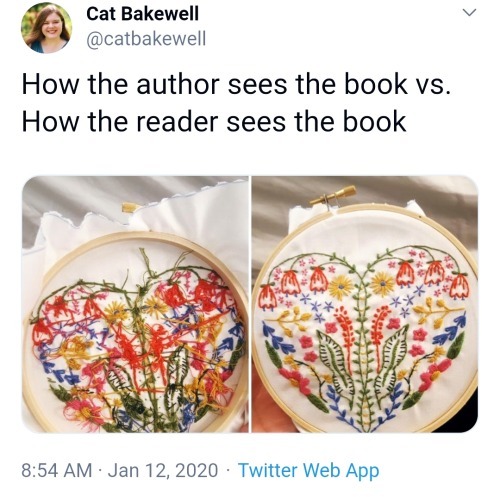





and of course the classic

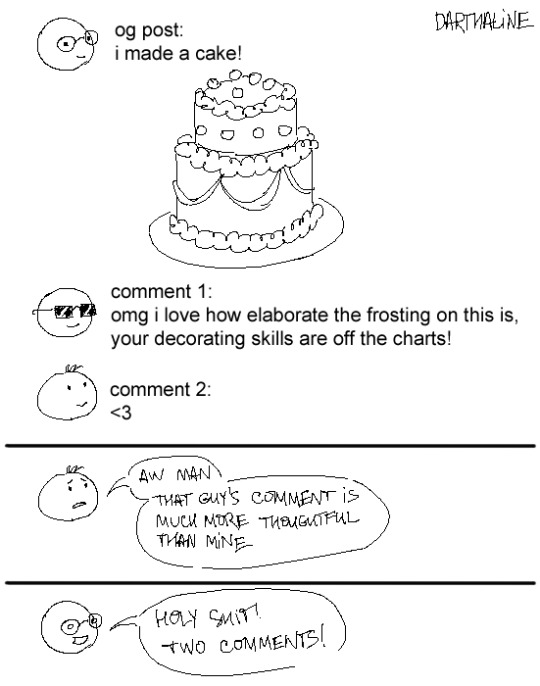

98K notes
·
View notes
Photo

Elizabeth Bathory by Katya Gudkina
560 notes
·
View notes
Text
I see your Zach McGowan and I raise you a John Wells:

I don't get why they insist on casting the hollywoody superman dude bros for The Witcher series. Zach McGowan is RIGHT HERE.
#my absolute headcanon Geralt#like seriously in what universe would constantly-traveling monster hunters look like models#I ask you#it's not even a lack of dirt it's more a lack of roughness to their looks#if that makes sense#the witcher#geralt#fancasts#headcanons#geekery#john wells
524 notes
·
View notes
Note
Are there any snakes that you feel are crazy and don’t seem like something that is from earth
You will never be able to convince me that Arabian sand boas aren't a child's drawing of a snake somehow come to life.

Also, blunt-headed tree snakes look like they're form a planet where they have sentient spaghetti noodles instead of snakes:

Elephant trunk snakes look like someone tried to describe a boa to someone from another planet and they reconstructed one based on that description (and also it melted a little):

Tentacled snakes have tentacles at the ends of their noses that look like little mustaches. They're obviously from a much cooler planet where snakes have mustaches:


And the spider-tailed horned viper has such an impressive lure adaptation it's hard to believe it's real! They have lures at the end of their tails that look so much like spiders when they move them (to attract birds, their favorite prey!), it's incredible.


The coolest thing is that all of these snakes, weird and wonderful as they are, have very real evolutionary reasons to look the way they do! It's pretty dang incredible, and I feel so lucky to be alive at the same time as so many awesome snakes!
#HOLY SHIT the last one#how#snakes#science!#zoology#I did not know some of these existed#they're so cool#inspiration#reference#animals
9K notes
·
View notes
Text
I can’t stop thinking about crocodiles for some reason so here’s some cool pictures I found of probably the second largest one in captivity, his name is Utan:




isn’t he beautiful
listen to the SOUND when he bites
youtube
and that’s not even a real power bite, that’s mostly just heavy bone falling on heavy bone from his jaws and the air rushing out from between them
210K notes
·
View notes
Photo



Over 100 Young Crocodiles Find Refuge on Their Father’s Back in India’s Chambal River
34K notes
·
View notes
Text
Colección favela verano 2022
40K notes
·
View notes
Text
Concerning Juliet’s age
I find a big stumbling block that comes with teaching Romeo and Juliet is explaining Juliet’s age. Juliet is 13 - more precisely, she’s just on the cusp of turning 14. Though it’s not stated explicitly, Romeo is implied to be a teenager just a few years older than her - perhaps 15 or 16. Most people dismiss Juliet’s age by saying “that was normal back then” or “that’s just how it was.” This is fundamentally untrue, and I will explain why.
In Elizabethan England, girls could legally marry at 12 (boys at 14) but only with their father’s permission. However, it was normal for girls to marry after 18 (more commonly in early to mid twenties) and for boys to marry after 21 (more commonly in mid to late twenties). But at 14, a girl could legally marry without papa’s consent. Of course, in doing so she ran the risk of being disowned and left destitute, which is why it was so critical for a young man to obtain the father’s goodwill and permission first. Therein lies the reason why we are repeatedly told that Juliet is about to turn 14 in under 2 weeks. This was a critical turning point in her life.
In modern terms, this would be the equivalent of the law in many countries which states children can marry at 16 with their parents’ permission, or at 18 to whomever they choose - but we see it as pretty weird if someone marries at 16. They’re still a kid, we think to ourselves - why would their parents agree to this?
This is exactly the attitude we should take when we look at Romeo and Juliet’s clandestine marriage. Today it would be like two 16 year olds marrying in secret. This is NOT normal and would NOT have been received without a raised eyebrow from the audience. Modern audiences AND Elizabethan audiences both look at this and think THEY. ARE. KIDS.
Critically, it is also not normal for fathers to force daughters into marriage at this time. Lord Capulet initially makes a point of telling Juliet’s suitor Paris that “my will to her consent is but a part.” He tells Paris he wants to wait a few years before he lets Juliet marry, and informs him to woo her in the meantime. Obtaining the lady’s consent was of CRITICAL importance. It’s why so many of Shakespeare’s plays have such dazzling, well-matched lovers in them, and why men who try to force daughters to marry against their will seldom prosper. You had to let the lady make her own choice. Why?
Put simply, for her health. It was considered a scientific fact that a woman’s health was largely, if not solely, dependant on her womb. Once she reached menarche in her teenage years, it was important to see her fitted with a compatible sexual partner. (For aristocratic girls, who were healthier and enjoyed better diets, menarche generally occurred in the early teens rather than the later teens, as was more normal at the time). The womb was thought to need heat, pleasure, and conception if the woman was to flourish. Catholics might consider virginity a fit state for women, but the reformed English church thought it was borderline unhealthy - sex and marriage was sometimes even prescribed as a medical treatment. A neglected wife or widow could become sick from lack of (pleasurable) sex. Marrying an unfit sexual partner or an older man threatened to put a girl’s health at risk. An unsatisfied woman, made ill by her womb as a result - was a threat to the family unit and the stability of society as a whole. A satisfying sex life with a good husband meant a womb that had the heat it needed to thrive, and by extension a happy and healthy woman.
In Shakespeare’s plays, sexual compatibility between lovers manifests on the stage in wordplay. In Much Ado About Nothing, sparks fly as Benedick and Beatrice quarrel and banter, in comparison to the silence that pervades the relationship between Hero and Claudio, which sours very quickly. Compare to R+J - Lord Capulet tells Paris to woo Juliet, but the two do not communicate. But when Romeo and Juliet meet, their first speech takes the form of a sonnet. They might be young and foolish, but they are in love. Their speech betrays it.
Juliet, on the cusp of 14, would have been recognised as a girl who had reached a legal and biological turning point. Her sexual awakening was upon her, though she cares very little about marriage until she meets the man she loves. They talk, and he wins her wholehearted, unambiguous and enthusiastic consent - all excellent grounds for a relationship, if only she weren’t so young.
When Tybalt dies and Romeo is banished, Lord Capulet undergoes a monstrous change from doting father to tyrannical patriarch. Juilet’s consent has to take a back seat to the issue of securing the Capulet house. He needs to win back the prince’s favour and stabilise his family after the murder of his nephew. Juliet’s marriage to Paris is the best way to make that happen. Fathers didn’t ordinarily throw their daughters around the room to make them marry. Among the nobility, it was sometimes a sad fact that girls were simply expected to agree with their fathers’ choices. They might be coerced with threats of being disowned. But for the VAST majority of people in England - basically everyone non-aristocratic - the idea of forcing a daughter that young to marry would have been received with disgust. And even among the nobility it was only used as a last resort, when the welfare of the family was at stake. Note that aristocratic boys were often in the same position, and would also be coerced into advantageous marriages for the good of the family.
tl;dr:
Q. Was it normal for girls to marry at 13?
A. Hell no!
Q. Was it legal for girls to marry at 13?
A. Not without dad’s consent - Friar Lawrence performs this dodgy ceremony only because he believes it might bring peace between the houses.
Q. Was it normal for fathers to force girls into marriage?
A. Not at this time in England. In noble families, daughters were expected to conform to their parents wishes, but a girl’s consent was encouraged, and the importance of compatibility was recognised.
Q. How should we explain Juliet’s age in modern terms?
A. A modern Juliet would be a 17 year old girl who’s close to turning 18. We all agree that girls should marry whomever they love, but not at 17, right? We’d say she’s still a kid and needs to wait a bit before rushing into this marriage. We acknowledge that she’d be experiencing her sexual awakening, but marrying at this age is odd - she’s still a child and legally neither her nor Romeo should be marrying without parental permission.
Q. Would Elizabethans have seen Juliet as a child?
A. YES. The force of this tragedy comes from the youth of the lovers. The Montagues and Capulets have created such a hateful, violent and dangerous world for their kids to grow up in that the pangs of teenage passion are enough to destroy the future of their houses. Something as simple as two kids falling in love is enough to lead to tragedy. That is the crux of the story and it should not be glossed over - Shakespeare made Juliet 13 going on 14 for a reason.
#interesting#reference#medieval times#marriage ages#it's interesting how we now have this idea that them marrying so young was normal#makes you wonder about male fantasy writers#but we did that anyway tbh#women#writing#inspiration#shakespeare
57K notes
·
View notes


